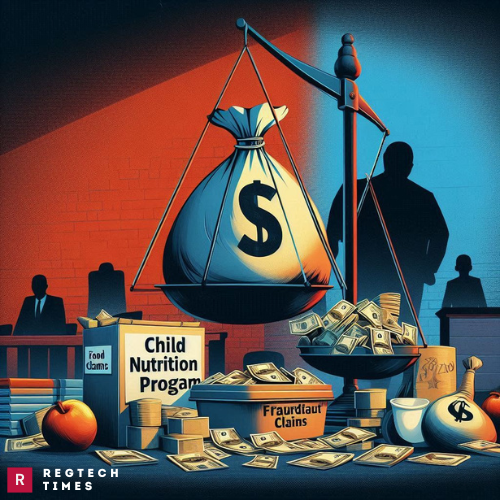In a shocking revelation of fraud involving taxpayer money, three individuals have pleaded guilty to their roles in a scheme that siphoned approximately $250 million from the Child Nutrition Program during the COVID-19 pandemic. This case has underscored serious vulnerabilities in the distribution of federal funds aimed at supporting vulnerable populations, particularly children in need.
The Child Nutrition Program Scheme Unfolded
The guilty pleas of Haji Osman Salad, Sharmarke Issa, and Khadra Abdi were announced by U.S. Attorney Andrew M. Luger, exposing a sophisticated operation that exploited the Child Nutrition Program (CNP). This program was established to provide meals to children who may have faced food insecurity, especially during the economic upheaval caused by the pandemic. Instead of serving meals, however, these individuals manipulated the system to enrich themselves through fraudulent claims.
Salad, the owner of Haji’s Kitchen LLC, was at the center of this operation. Between June 2020 and 2022, he falsely claimed that his business was providing over 15 million meals to various sites across Minnesota. Salad and his co-conspirators, including Issa and Abdi, established multiple shell companies to facilitate their fraudulent claims, submitting false invoices for food that was never delivered. For instance, in November 2021, Salad fabricated invoices that claimed he supplied a site in Pelican Rapids with $293,300 worth of food for 140,000 meals. Salad fraudulently obtained approximately $11.4 million from the Child Nutrition Program, which he improperly used for purchasing luxury vehicles and investing in real estate.
Roles of Co-Conspirators in the Child Nutrition Program Fraud
Sharmarke Issa was also a key player in this intricate fraud scheme. As the principal of Minnesota’s Somali Community and Wacan Restaurant LLC, he utilized deceptive records and fake food invoices to claim that his sites had served at least 2.3 million meals to children. Issa not only defrauded the Child Nutrition Program of approximately $3.6 million but also engaged in laundering the proceeds to purchase assets unrelated to child nutrition, including a private residence valued at $785,000 in Edina, Minnesota. His actions further illustrate how fraudsters exploited the pandemic’s challenges to enrich themselves at the expense of vulnerable communities.
Ukrainian Nationals Oleg Oliynyk and Oleksandr Yurchyk Charged with Tax and Immigration Fraud
Khadra Abdi, the third defendant, operated Shafi’i Tutoring & Homework Help Center, which was registered as a meal site under the Child Nutrition Program. Between April 2020 and December 2021, Abdi fraudulently claimed entitlement to about $3.5 million in federal funds. Notably, a minimal amount of this money was used for actual food purchases, showcasing the extent of the deceit involved in the scheme.
Legal Proceedings and Investigative Agencies
All three defendants have admitted guilt to wire fraud in U.S. District Court, and sentencing hearings are scheduled to take place in the upcoming months. The case has drawn attention not only for the staggering amount of money involved but also for the broader implications it has for federal programs designed to assist vulnerable populations.
The investigation was conducted by a coalition of federal agencies, including the FBI, IRS – Criminal Investigations, and the U.S. Postal Inspection Service. Their thorough investigation revealed a systematic effort to exploit the Child Nutrition Program, bringing to light serious flaws in oversight that allowed such fraud to occur on such a large scale.
Broader Implications for Federal Programs
This case serves as a wake-up call regarding the necessity for stricter oversight of federal funding programs, especially during emergencies like the COVID-19 pandemic. While these programs are designed to provide essential services, the abuse of these funds raises critical questions about accountability and transparency in their distribution.
The fraud perpetrated by Salad, Issa, and Abdi has not only resulted in significant financial losses for the government but has also deprived countless children of much-needed meals during a time of crisis. As communities continue to recover from the pandemic, ensuring that federal resources are effectively utilized is paramount.
The fraudulent activities surrounding the Child Nutrition Program during the COVID-19 pandemic highlight the urgent need for reform and enhanced oversight in government-funded programs. As the justice system processes the guilty pleas of Salad, Issa, and Abdi, the case serves as a reminder of the importance of protecting taxpayer money and ensuring that resources intended for vulnerable populations reach those who truly need them.


